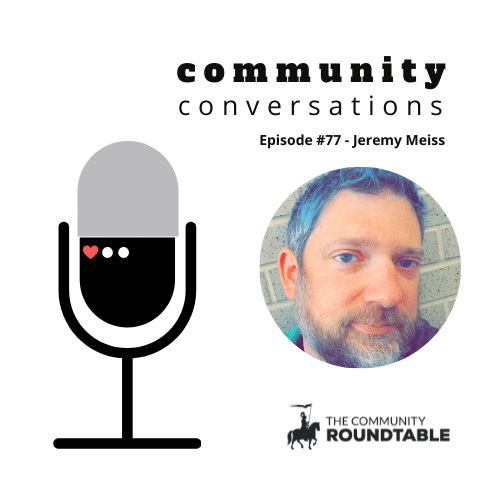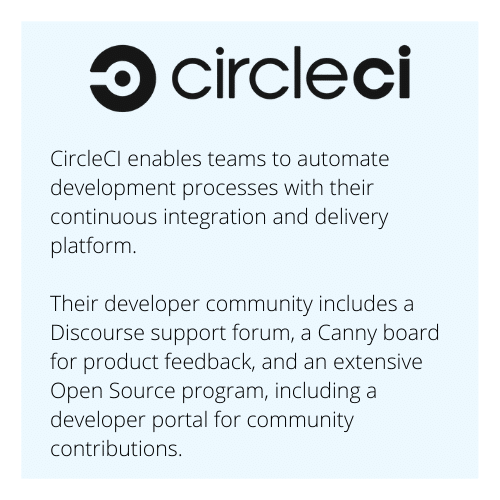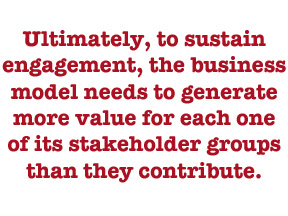The Problem
Jeremy Meiss, Director of DevRel and Community, joined CircleCI in February 2020. But while Jeremy’s role was new, CircleCI always understood that Developer Relations was necessary.
“Developers are at the core of what we’re building,” says Jeremy. “They’re the ones using our platform.” But when he joined, they only had a team of two and needed to develop a new strategy. “We’re in a competitive space, and community is a differentiator for us. It’s through building relationships that we’re going to continue to grow. We know we’ve got a fantastic product, and that word of mouth is there, and community is an important part of that.”
The Solution
Jeremy began to put a new strategy in place, focusing on education and inspiration through scalable programs rather than just hitting conferences. “Orbit has informed everything we’ve done since,” says Jeremy.
Identifying KPIs to Drive Community Growth
“We started by raising awareness of what we were doing,” and that started with defining KPIs. At that time, “we only knew stats like the number of events attended and blog posts published, nothing about how our reach was growing, or whether we were getting better at activating developers and nurturing advocates.”
Orbit supported their KPI definition by bringing visibility into their community across platforms. By integrating their Discourse support forum, GitHub, Twitter, and other channels, they could pipe their data into Orbit. “Orbit provides us with a single pane of glass to visualize our community. This means we can better understand our community, see growth opportunities, and where we can focus on building a vibrant community.”
They were soon getting insights. “Originally, we thought our community was just our Discourse forum of folks adding questions. Orbit has helped us see into areas we weren’t tapping – areas we didn’t know we had people doing all these valuable things. We now know that GitHub is our most active source, and that’s where we’ve found the most opportunities to build relationships and help developers on their path, too.”
Data-led Iterative Program Improvement
Based on these insights, they started to create specific programs to drive community health metrics, like “active users, and returning users versus new users, which forms part of our OKRs around growing the community. Before Orbit, we couldn’t tell whom we needed to focus on. We had multiple different tools telling us bits, and we thought we’d need to build out our own thing, in an Excel spreadsheet, Airtable, or whatever, to bring all that information together. That would have been time-consuming and error-prone. With Orbit, we didn’t need to do that.”
“We can now see whether those we connect with at conferences or workshops are moving through the engagement levels. We use the Orbit Model to gauge that. So we know if we need to go do something more to help them take that next step”. Over time, they’ve been able to use the reporting in Orbit to “refine what activities we do. It tells us where we can do better. Have live streams worked for us? Is that activity adding new members or engaging existing ones more? With that knowledge, we know the activities we should focus on.”
“We automate key actions too. So we can reach out to contributors and thank them publicly or identify potential ambassadors. Orbit puts a face to the community member so that we can build that relationship.”
Creating Custom Reporting with the Orbit API
Beyond the built-in reports and automation, CircleCI has made extensive use of the Orbit API. “We’ve built out our own integrations around it, and the open API piece has helped a lot with that. We have internal dashboards that we present on slides each week to other teams. We use the reporting API to get the raw data we need into our internal reporting to be consumed by other areas of the company, including marketing and at the executive level. We can see where we are and if we’re meeting different goals.”
The Result
Guided by Orbit, Jeremy and his team have built out programs that engage, educate, and excite their user base and help build relationships with their developer community.
From one developer advocate and one community manager, they’ve been able to grow their team, forming regionally focused sub-teams. They now have 16 team members across the company who are in their Orbit workspace. “Everyone is in Orbit for one thing or another at different levels – talking and learning, building programs, and establishing processes around what we do. Orbit informs what they’re doing and helps them keep track of the relationships they’re building”.
“With these metrics and reporting, we’ve been able to prove our strategy and ensure investment to keep growing our impact. We’ve shown how more and more people are talking about us and how the community is rallying around us. So now we’re continuing to grow the team, our impact and maximize the opportunities we’re seeing”.
Their usage of Orbit is spreading within CircleCI, too, helping them collaborate closely with other teams. “It’s now used by folks from our product and customer engineering teams who work with Orb contributors and Partners. They keep notes and get a feel for what’s happening and who is doing what. We built out a feedback integration with Orbit so product can see who is providing valuable feedback, which informs who we provide with beta access. Now we’re in the process of sending Orbit data into our data warehouse so we can understand how the community fits within our customer base and how DevRel activities feature in a typical customer journey. It has made getting that process up and running a whole lot easier”.
“The team has been able to take Orbit and run with it, see what’s happening, and better understand our community.”
Hear more of the CircleCI story on this episode of our podcast, Community Conversations.



 Editor’s Note: This post was originally published by Rachel on LinkedIn.
Editor’s Note: This post was originally published by Rachel on LinkedIn.  given their current leadership. This type of business model requires the organizations themselves to recognize revenue and value only after it has ensured each stakeholder group has gotten more value than they have contributed. Typically, organizations work to recognize as much value as possible, as soon as possible; when’s the last time you heard a sales executive say ‘We don’t get paid until our customers feel like they have won’? This mentality leaves stakeholders feeling combative, not collaborative – whether they are customers or employees – and that does not lead to organic and frequent engagement because those stakeholders don’t see the organization’s success and their success as the same thing.
given their current leadership. This type of business model requires the organizations themselves to recognize revenue and value only after it has ensured each stakeholder group has gotten more value than they have contributed. Typically, organizations work to recognize as much value as possible, as soon as possible; when’s the last time you heard a sales executive say ‘We don’t get paid until our customers feel like they have won’? This mentality leaves stakeholders feeling combative, not collaborative – whether they are customers or employees – and that does not lead to organic and frequent engagement because those stakeholders don’t see the organization’s success and their success as the same thing.